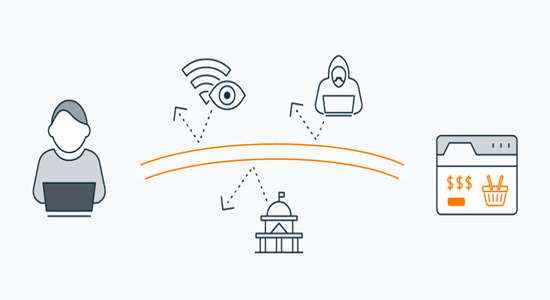
If you received the message, “This video is not available in your country” after clicking a YouTube video, then you have been geo-blocked. Although there are certain reasons for geo-blocking, however, it can also prevent you from enjoying the videos, and other media that you love.
What is Geo-Blocking?
Geo-blocking occurs when access to some content is restricted in some areas. These restrictions are usually practised within international borders. Geo-blocking is usually used by subscription plans such as Amazon Prime, streaming services such as Netflix or Hulu (which can be annoying when Error Code 500 occurs), and online media companies for the purpose of complying with the licensing agreements among media properties, legal systems in some countries, as well as other regulations.
Additionally, geo-blocking can be used to block access to websites promoting illegal activities such as online gambling. Most often, geo-blocking is used by some ISPs (internet service providers) in controlling the internet as part of their traffic-shaping technique for managing the bandwidth and alleviating traffic congestion on the network.
Sometimes geo-blocking is also used for less benevolent reasons. For instance, geo-blocking is used by some national governments in blocking websites that their citizens are not allowed to visit. Also, geo-blocking is used by some online retailers, like Amazon, in forcing consumers to use the local version of their websites, which usually charges higher prices compared to the prices in other countries.
How Does Geo-Blocking Work?
Tracking and geolocation technology is being used by geo-blocking in determining your Internet Protocol (IP) address. You can consider your IP address as your home address since it identifies your location. In case your IP address connects to a country where the content of a website is blocked, then geo-blocking will be activated and you won’t be able to access that particular content on a website.
But contrary to a home address, the IP address on your device can change depending on the location and ISP. Your ISP is responsible for providing you with your IP address. And your IP address also includes your geographic information. Some geo-restrictions might be activated depending on your IP address.
How to Avoid Geo-Blocking?
There are various methods to avoid geo-blocking so you will be able to access your favourite websites. These methods include using a proxy server, a VPN, or smart DNS. Regardless of what method you use, they can help in hiding your IP address.
1: Use a VPN
You can choose from free vpn options. A VPN (a virtual private network) is capable of hiding your IP address and encrypting your connection to keep your data private. Since your traffic will be routed to a server in another country, VPNs can help you in avoiding geo-blocks so you can prevent content restrictions. In this way, you can connect to Australian, UK, or US servers.
Keep in mind that these VPNs are secure and safe to use, allowing you to look for better deals, stream your favourite movies or TV shows, or experience private browsing. You can easily set up VPNs and enjoy their benefits, especially if you are using public Wi-Fi or travelling abroad.
VPNs are completely legal. However, as their popularity grows more and more, they have attracted attention from ISPs and streaming services that are trying to block IP addresses that come from VPNs.
VPNs can avoid geo-blocking so you can enjoy your privacy wherever you go. Aside from accessing the content that you desire, you can ensure that your browsing activity is completely secure.
2: Proxy Servers
Think of proxy servers as the mediators between you and the servers that provide you with the content that you desire. A proxy server will represent you on your behalf in accessing the data and passing it on to you. If you are using a proxy server from another country, then it can help you in avoiding geo-blocking.
Different types of proxy servers provide different levels of anonymous browsing. For instance, anonymous proxy servers are capable of hiding your IP address. Also, there are several web-based proxy servers that can be accessed directly from your browser. A proxy server is easy to set up, however, it cannot encrypt your data, hence, your activities are not safe.
3: Smart DNS
Another method of avoiding geo-blocking is by using smart DNS. Smart DNS will reroute your Domain Name Server (DNS) requests to a different location so you will be able to access restricted content.
Smart DNS will use one or two DNS addresses. On the other hand, DNS changers can alter your DNS each time you log on. Installing smart DNS or DNS Changers can be challenging, mostly, depending on your DNS service.
Furthermore, Smart DNS and DNS changers are mainly used for hiding locations, so your online activities and other information might be at risk.
Hardeep has always been a Windows lover ever since she got her hands on her first Windows XP PC. She has always been enthusiastic about technological stuff, especially Artificial Intelligence (AI) computing. Before joining PC Error Fix, she worked as a freelancer and worked on numerous technical projects.